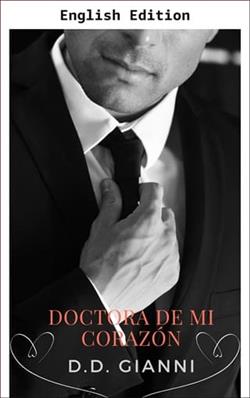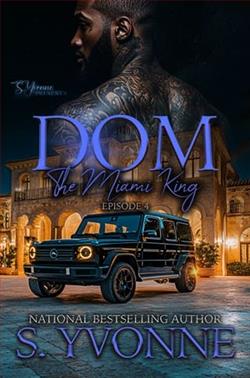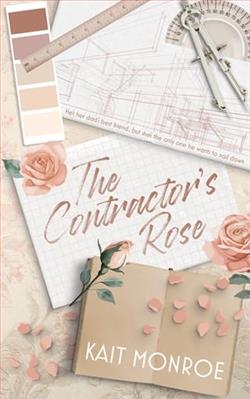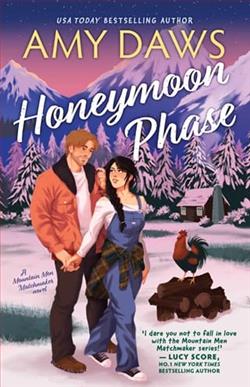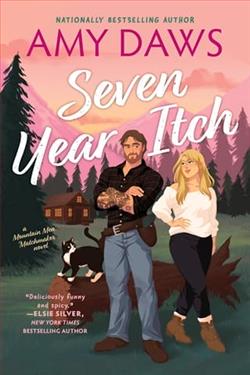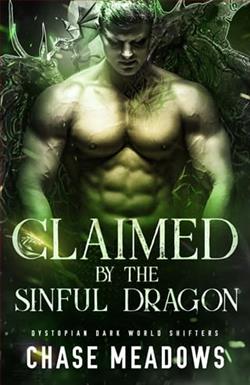Page 1 of Keeping Kate
Prologue
London
Spring 1728
One glance spared for the golden beauty standing in the crowd nearly cost Alexander Fraser his life, certainly his timing. Stepping back, he lifted his sword to parry again, aware that his opponent could have taken the advantage when Alec’s attention had diverted briefly.
Fortunately, swordsmanship was not Jack MacDonald’s strong suit. But Alec was not about to prove that by being accidentally skewered in front of the afternoon assembly of King George’s court at St. James’s Palace.
Captain Alexander Fraser,Highland regimental officer, laird of Kilburnie and heir to a fortune he did not want, sidestepped in a wary dance. With his targe shield braced on his left forearm, he waved a dirk in his left hand like a wicked thorn and gripped a basket-hilt broadsword in his right to parry Jack MacDonald’s oncoming stroke. The clash of steel rang out in the great hall, echoing against vaulted ceilings, wood-paneled walls, and a slate floor laid two centuries earlier.
Turning, Alec saw the dazzling girl again, closer to him now. Who was she, he thought—and why would he care? Yet he could not help but notice her sparkling presence even during a swordplay demonstration; he glimpsed her golden beauty, her gown of creamy damask, and the tartan shawl draped and tucked around her slim form.
A beautiful young Scotswoman—and bold enough to wear the plaid in this nest of Whigs and Englishmen in the presence of the very king. As a Scotsman at court, he ought to know her, but did not. Shifting his stance, he angled, turning his back to her, mercifully regaining his focus.
Taking catlike steps to the right, he swept his blade down. His broadsword struck his opponent’s hard enough to vibrate from hand to shoulder. He smacked his hilt backward into Jack MacDonald’s left hand, loosening the dirk clutched there. Flexing his empty fingers, MacDonald sent him a quick glare.
With a quick upward thrust of his long dirk, Alec stabbed into the wedge of space between the other man’s torso and sword arm. In return, MacDonald whipped his blade wildly as Alec tilted back to avoid the sweep. Alec circled sideways, wary and watchful, while both men tried to gauge each other’s next move.
The audience stood several deep in the hall now, a mass of colored fabrics, powdered wigs, unfamiliar faces. The press of bodies warmed air already thick with perfumes, pomatum, wine, and sweat. King George, second of the name, portly in green damask and a silvery wig, occupied a gilt chair on a decorated dais. Queen Caroline sat beside him, lush and blowsy in flowered silks.
Alec saw all this in a blur, and once again, his gaze caught the beautiful girl who glowed in the crowd like a sunbeam. She leaned sideways to listen to the comment of a woman dressed in black. Whirling away, Alec lunged, pulled back, shifted his feet.
Quarter guard, parry, stepping together, then apart in a lethal dance. Gasps fluttered through the crowd as Alec’s next thrust deliberately missed his opponent. Leaping to one side, he met MacDonald’s next advance with a hanging guard, sword tipped downward, then flicking up to catch and tear cloth, all the while keeping a steady rhythm of breath and motion.
Lifting his blade next, MacDonald overshot as Alec swiftly stepped aside and steel bit into slate. Alec brought his blade in a rapid upward arc within an inch of his opponent, tapping the plaid and shirt covering the ribs—a deadly blow had he put force behind it. He held the sword in position while MacDonald froze under that lethal guard.
Breathing fast, Alec waited, his loose linen shirt damp now, clinging to his back beneath his wrapped plaid.
The girl was just at the corner of his vision. He was aware of her each time he turned, foolish as it seemed, though he never took his gaze from Jack MacDonald.
Finally, Jack opened his hands in defeat, dropped his sword with a clatter to the floor, and stepped back, bowing graciously. Alec inclined his head and dropped the point of his sword.
Jack smiled, quick and boyish, turning to bow as the crowd erupted in applause. His bright grin and handsomely chiseled face, the black curls clinging to his brow, the Highland tartan and his romantic, roguish appearance coaxed a ripple of audible sighs among the ladies. The man had many talents, Alec thought, among them irrepressible charm. Women adored Jack MacDonald no matter what sort of rascal he might be.
Jack reached out to clap Alec amiably on the shoulder. Silent and somber, Alec nodded, wiping his sweaty brow with his forearm. Unlike Jack, he was no showman to garner sighs and smiles. He only glanced at the audience—flicking a glance toward the beautiful Highland girl, for he could not help it—and then laid his weapons on the floor, but for the basket-hilt sword, which he kept in his grip. Jack collected more applause, caught perfumed silken handkerchiefs tossed his way, and pocketed them in his draped plaid with a bow. Then he and Alec angled to face the dais.
King George nodded his approval and paused expectantly. A solemn valet in a bag wig and green coat beckoned the Highlanders forward, indicating that they should bow.
Alec hesitated. He was loath to bow before the German elector when the rightful king of Scotland and England, James Stuart, lived in exile in Rome. But James Stuart had nearly given up hope, they said, leaning toward Providence or Jacobites to make the effort to restore his throne.
As an officer in a Highland Independent Company obligated to serve on behalf of the English crown, Alec was accustomed to concealing his true loyalties, especially here. Discretion and secrecy were wise choices when one worked covertly for the Jacobite cause. He inclined his head in a slight bow, barely enough, while Jack bowed deeper, albeit without his usual cheerful flourish.
“Your Majesty,” Alec murmured.
“Very goot demonstration,” King George said. “Zat big sword, it is a clay-mer?” He spoke in a curious mix of accents, French and German blended with aristocratic English. In an ordinary man, one would have been hard-put to identify his origins, but this Hanover king’s European upbringing was well known to many.
“Aye,claidheamh mórin the Gaelic, your Grace,” Alec replied. “It means ‘big sword.’” As he spoke, he noticed the golden young woman gliding closer to where he stood. The older lady in black came with her like a duenna. Alec wanted to turn, focus on the girl, find out who she was—a better reward for demonstrating Highland fighting technique in this circle than any this particular king could give him.
“We thought dey vas bigger, dose swords,” the king observed. Tittering laughter spread through the assembly.
“Your Majesty,” Jack replied, “early Highland claymores were much larger, with two-handed hilts and blades near as tall as their owners. They were suited for brutal battle, not close combat. Broadswords now have shorter blades, and the basket hilt is a Scottish improvement. Our weapons have German blades as well.” Jack bowed again. Alec stood ramrod straight and silent beside him.
“Goot German steel, yes! But all weapons is confiscated in da Highlands now.” The king snorted a laugh.
“Sire, we are aware of that,” Alec said stiffly. “These are only for demonstration.”
“It is a goot performance for da queen’s birthday,” the king went on, “better dan dat Beggar’s Opera in de theater house now.” He turned to speak to Queen Caroline, seated beside him. Plump and pretty in silks and pearls, she smiled at the Highlanders, then leaned toward her husband to murmur in confidence.








